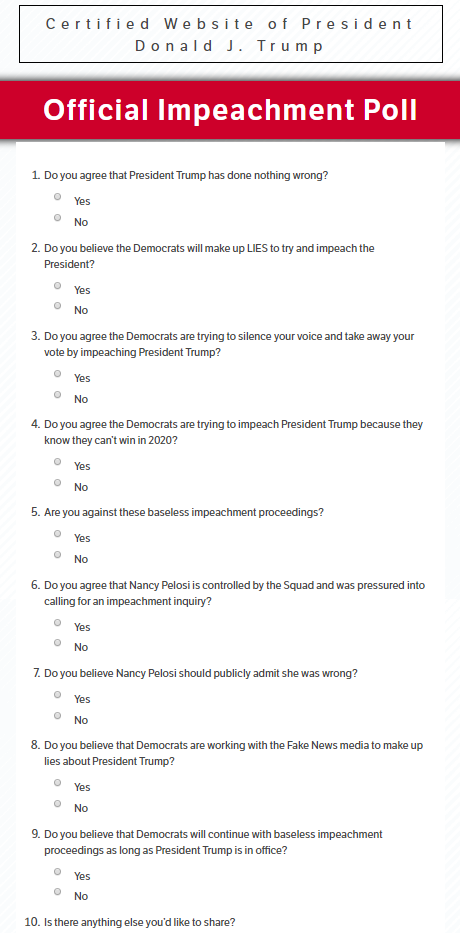I tend to group polls into one of two types:
scientific polls that intend to reflect accurately what the population or whichever subgroup it is interested in thinks/believes/desires/knows
proof-of-myself polls that intend to show support for whatever my political/sales/religious message is.
Of course, they are sometimes hard to distinguish but a lot of polls make it blatantly obvious that they are in the second category (although arguably these are mostly marketing polls).
The idea behind it is simple. ‘9 out of 10 doctors recommend <insert product here>!’ ‘93 % of users are content with <insert service here>!’ ‘65 % of voters agree that <insert policy here> must be done!’ The first two obviously work in product or service marketing as evidenced by their continued prevalence. Often, the scientific basis behind the claims falls apart if you look at it for more than two split seconds. Sometimes the science behind is slightly more rigorous but still obviously biased—but that type of poll also costs more to make so the advertiser may not choose to perform it.
In the political world, we have become accustomed to polls to describe voting preferences, candidate preferences and policy support in the time between elections (or when the actual choice is not up for election as would be the case e.g. for political candidates in Europe). Furthermore, because there is a critical mass of reputable, scientific polling companies and organisations, there tends to be a certain belief in the accuracy of published polls.
Polls are not only made for politicians (who might use them to gauge support for themselves, their parties or policies) but may also be used by undecided voters in the run up to an election to decide who to vote for, or the published opinion may influence public opinion. Obvious example: if a candidate has 70 % support, it is psychologically harder to disagree with them because it implies disagreeing with the ‘powerful majority’. Thus, publishing polls that have ‘all the scientific rigor of a wet noodle’ (nice quote!) can serve as simple, basic marketing to improve one’s position or support.
